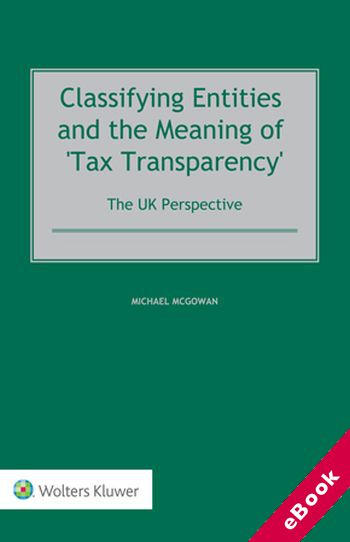
The device(s) you use to access the eBook content must be authorized with an Adobe ID before you download the product otherwise it will fail to register correctly.
For further information see https://www.wildy.com/ebook-formats
Once the order is confirmed an automated e-mail will be sent to you to allow you to download the eBook.
All eBooks are supplied firm sale and cannot be returned. If you believe there is a fault with your eBook then contact us on ebooks@wildy.com and we will help in resolving the issue. This does not affect your statutory rights.
Classifying Entities and the Meaning of ‘Tax Transparency’ breaks new ground in explaining comprehensively the rules for classifying entities and the meaning of ‘tax transparency’ in UK tax law. Imposing UK tax on an entity or those linked to it involves understanding what kind of entity is being dealt with, especially when it is formed outside the UK. Is it a company, a partnership, a trust or something else? This often involves considering whether the entity is ‘tax transparent’ and, if so, what that means. The UK tax rules for classifying entities are notoriously vague, and there is no single UK meaning of ‘tax transparency’.
What’s in this book:
With an emphasis on UK tax law but with a strong international perspective, this book addresses in particular:
The book compares the UK entity classification approach with that of the US, the Netherlands and France. Appendices consider the unusual UK capital gains tax treatment of partnerships, as well as the special transparency rules which can apply where a partnership is a party to loans or derivative contracts, or owns intangible assets.
How this will help you:
Questions of entity classification and tax transparency are of fundamental importance in any mature tax system and especially in a globalised economy. This pragmatic book unlocks those questions for both academics and practitioners, both within and outside the UK.